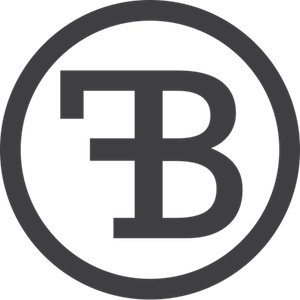Mikko Salo and Anne Leppäjärvi presented Professor Bill Adair, co-organiser of the Global Fact-Checking summit, with a Faktabaari mug on 24 July 2015 at City University London.
Faktabaari joined the global fact-checking community when key operators in the field gathered together for their annual conference at City University London on 23-24 July 2015.
The Global Fact-Checking Summit 2015 in London offered many new ideas and networking opportunities to push both Faktabaari and the entire Finnish fact-checking culture forward.
The two-day conference welcomed fact checkers from a total of 31 countries.
Among them was Senior Producer Adam Chodikoff from The Daily Show, a US political satire television programme hosted by Jon Stewart. Chodikoff talked about the challenges of combining comedy and fact.
The conference offered a forum for exchanging views with representatives of communities such as factcheck.org, politifact.com and theconversation.com which have inspired both Faktabaari and Debattibaari.
Equally, conversations with journalists working under extremely challenging conditions in authoritarian countries provided a new perspective to our own projects. In many countries facts pose a threat to the system. Iraninan Rouhani Meter, for instance, has to operate from Canada.
In democratic societies it is still possible to work towards fact-based public debate. The threat arises more from increasing media focus on entertainment and vulnerability, particularly online, to easily mobilized downright propaganda.
Conferences such as Global Fact-Checking Summit are becoming a permanent event with the Poynter Institute and Duke University in the United States at the helm. However, modes of operation customized to the European reality will also be needed in the future.
With our experience of crowdsourcing with journalism schools Faktabaari positioned itself as an active participant in the network.
Our motto “Faktapohjaisen julkisen keskustelun puolesta” (For fact-based public debate), Factbar.eu community as well as Debattibaari encouraged lively interest especially among the participating European colleagues.
More news on Factbar.eu project is expected by the end of the year – follow @factbar.
The conference covered a broad selection of topics that are significant to many fact-checking operations.
Below are some initial observations:
A fact-checker’s work is not over once the fact has been checked. The next step is to convince people that the fact is correct and to persuade them to give up their earlier view. This alone makes speed into a virtue. Facts need to be corrected before people become convinced of incorrect ones. For the correct fact to reach people, media outlets and information sharers, fact-checkers need to work everywhere, and especially the social media.
The key to fact-checking as well as journalism as a whole is the public: is the public interested in what is happening in society. This interest can be fed with facts and quality journalism. Today journalists have the demanding task of awakening this interest. At the moment it seems that journalism is headed in the wrong direction and consequently has lost the public’s interest and trust.
As the tools of fact-checking develop, fact-checking is emerging as a profession on its own right alongside traditional journalism. Collaboration between journalists and fact-checkers who take a scientific stance to phenomena can re-establish the public’s trust. The emergence of fact-checking tools is expected to boost development.
Professor Bill Adair, a co-organiser of the Global Fact-Checking Summit, estimated that in three to five years fact-checking technology will have arrived to support fact-checking work and many simple checks now performed by people will be performed automatically. And what is more, also fact-checking not easily performed by people can be undertaken. This does not mean that journalistic work will be replaced by automatics, but rather that more time will be available to write journalism on the basis of correct facts. Fact-checking will make room for finding the facts.
The likely next big step forward in the field is structured journalism. Internet search engines love structure. Journalism and editing work need to take this preference into account.
The Faktabaari team and its network or collaborators were represented in the conference by Mikko Salo, Tuomas Muraja, Anne Leppäjärvi and Johanna Vehkoo.
Faktabaari created its own Twitter and Facebook username ”Factbar” for its international partners.
The Global Fact-Checking Summit was covered, among others, by:

